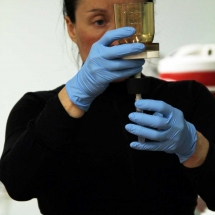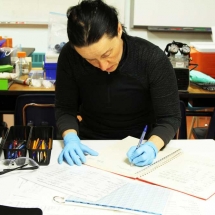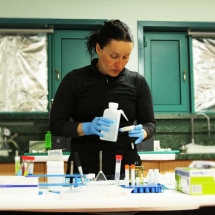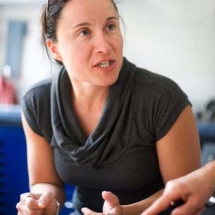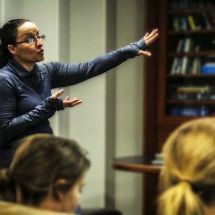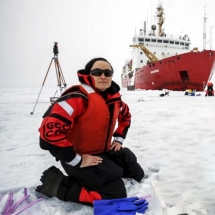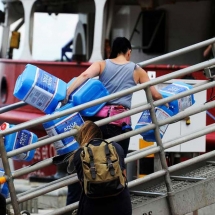Flavienne Bruyant: the Amundsen Coordinator
She is part of the Takuvik scenery
Passionate about oceanography and the marine environment, Flavienne obtained a Ph.D. in Biological Oceanography and Marine Environment in 2002 from the Université Pierre et Marie Curie (UPMC) in Paris under the supervision of Marcel Babin. After completing her doctorate, Flavienne moved to Halifax, Nova Scotia where she spent 7 years working with John Cullen at Dalhousie University. During this period, her expertise led her to Hawaii where she participated in a project to cultivate diatoms on an operational scale. In 2009, Flavienne joined Yannick Huot’s lab at l’Université de Sherbrooke. She also was a key member of the Photosynthesis and primary production working group during the Malina project (2008-2012).
Highly regarded for her professionalism, and perfectionism, it is no surprise that Flavienne was later hired to design and coordinate the construction of state-of-the-art research laboratories when Marcel was awarded his CERC in 2010. In fact, other than the principal applicants, Flavienne was the first member of the Takuvik team when the UMI was established in 2011.
New responsibilities for an energetic personality!
Flavienne loves outdoor activities and is a true cycling enthusiast. She is rumored to have at least 4 bicycles stored in the guest room at home! In the fall of 2015, she was not afraid to venture out solo for a whole month with her bike and her backpack to discover the magnificent landscapes of the western United States.
This dynamism and spontaneity benefit Flavienne in the professional environment. She coordinated the logistics of the Greenedge Amundsen cruise, organizing the 6-week (June 3-July 14) oceanographic mission in Baffin Bay.
Her role on the ship
As coordinator of the Amundsen mission, Flavienne’s involvement in the project started well in advance of her departure. Beginning in the fall of 2015, she maintained contact with all of the international laboratories involved in the Green Edge project, arranging the purchase of laboratory supplies and the shipment of cargo in preparation for the mission. Once on board, her innate organizational skills enabled each scientist to recover all of the material they required to conduct their research.
However, her role as coordinator went further than this because she also had the tough task of organizing the layout and allocation of laboratory space as well as planning each day spent at sea.
